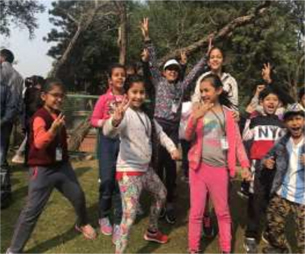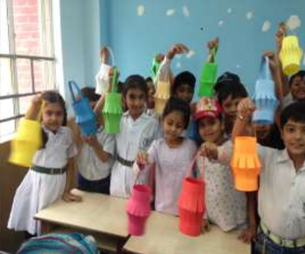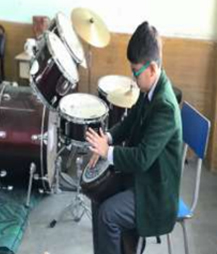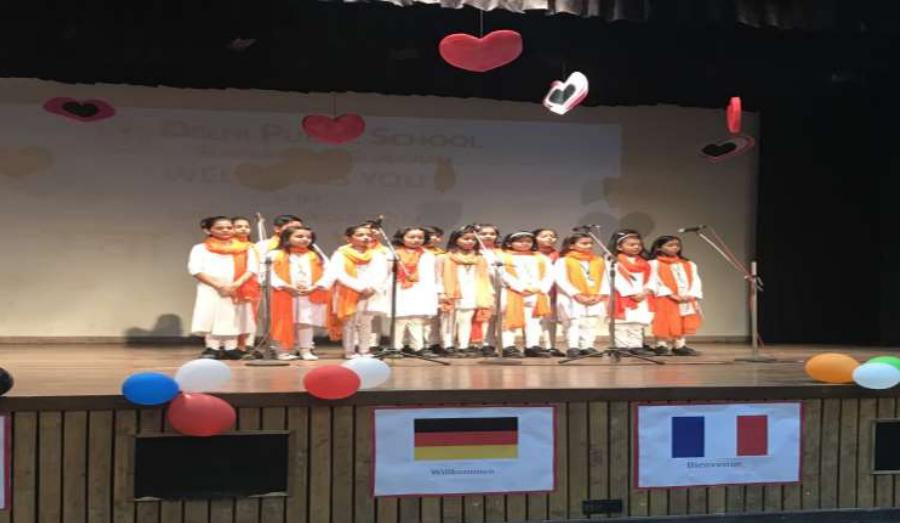Delhi Public School, Sushant Lok
Curriculum- Primary Wing (2020-2021)
DPSSL inculcates in each child a sense of belongingness, nurtures each child’s uniqueness and helps develop skills which enables them to meet, with self - confidence and assurance, the demands of life, both now and in the future. At the primary level (classes III – V) teaching and learning, an ongoing process, focusses on educational paradigm that centers on the learners. The curriculum followed at this level, is interactive, integrated, comprehensive, challenging and is an example of the best teaching practices, demonstrating leadership by adopting innovative approaches to teaching and learning to improve student outcomes. To make students learn what is being taught, the curriculum is a combination of various approaches (Bloom’s Taxonomy, MI Skills, Inquiry Based, Interdisciplinary and Experiential) and each subject has goals for the development of 21st Century Skills.
SCHOLASTIC ACTIVITIES
The subjects taught are English, Hindi, Math, EVS, SST, Science, Art & Craft, III Language (French, German, Japanese and Sanskrit), Physical Education and Computer Science. Teaching methodology along with age appropriate and critical thinking activities equip the students to understand that endless possibilities and solutions exist to solve a problem.

Children learn in many different ways. Reaching out to each child, the teaching methodology in the Primary Wing transforms these ways of learning into relevance.
Exploring Minds- DPSSL Primary Wing has a vision for each child. Here the teaching and learning mode re-ignites the natural curiosity of every student through exploration and discovery. It gives young minds opportunities to experience learning as a meaningful whole by triggering their curiosity, meeting the individual needs and weaving connections across subjects. They are at their best in a collaborative learning environment. Sharing and discussing about their discoveries and experiences, the students build on the concepts taught. Integrated Approach, on one hand, translates this into practice and Flipped teaching, on the other hand, changes the classroom dynamics making it more relevant while building transferable life skills.

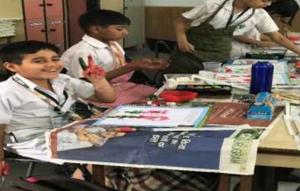
Engaging Minds- Translating theory into practice in a multitude of settings inside and outside of the classroom is done through experiential learning. This pedagogical value of teaching students to move from concrete to the abstract gives them an opportunity of learning by doing. To further embed learning within the real world contexts, activities like Space and Astronomy, Robotics, Coding and Math Gaming Program, teaches life skills and develops attitudes like- curiosity, wonder, exploration, inquisitiveness, creativity and analytical thinking.
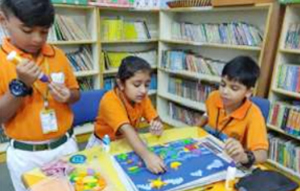
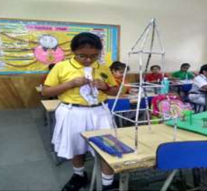
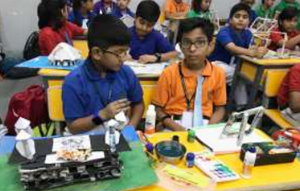
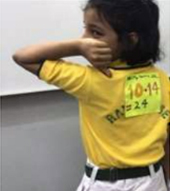
Evolving Minds – Learning different languages is a gateway to new experiences. The four new languages introduced at the primary level makes our young evolving minds smarter, attain specialized level of learning and ensures all round development. Since achieving language literacy is a key priority, activities like Debate Club, Read Programme and Drop Everything And Read tap on their hidden talent thus making them self- reliant. It also fires their imagination and appreciation for the languages and gives them impetus to explore and discover their aptitudes.


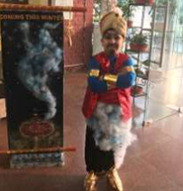
CO-SCHOLASTIC ACTIVITIES
We understand that every activity in school life plays a significant role in development of students. With the aim to foster holistic development in education, co-scholastic activities supplement and complement the scholastic curriculum. These co-scholastic activities, as an educational tool, help the students to explore their strengths, interests and abilities. Apart from building intellectual, social and emotional skills, it further develops life skills such as- moral values, personality growth, character appeal and leadership skills. Having honed these skills and experiences, it guides, informs and shapes the students opinions towards the academic subjects.
For learning to succeed beyond subjects, the primary wing offers a plethora of activities.
- Performing & Creative Arts - Music, Art, Dance & Theatre
- Special Assembly / Sports Day
- Friday Activities - Robotics, Gymnastics, Taekwondo, Instrumental Music, Public Speaking, Table Top Cookery, Science Club, Painting & Paper Craft, Clay Modeling & Pottery, Computer Club, Football, Cricket, Skating, Chess, etc.
- Celebrating Festivals & Important Days
- Inter School & Intra School Competitions
- Inter House Activities
- Adventure Camps & Picnics
- Health Awareness Drives
- Community Service
- Workshops
